Bad Album Covers
How many of these are religious in nature? I'm just sayin'. . .

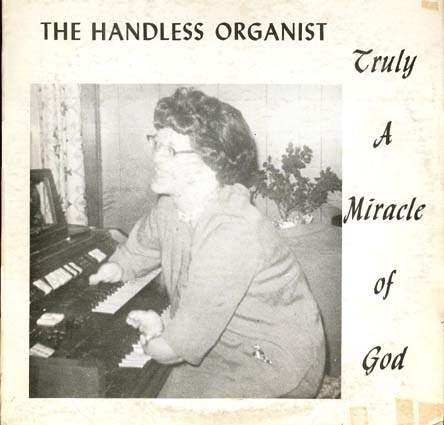

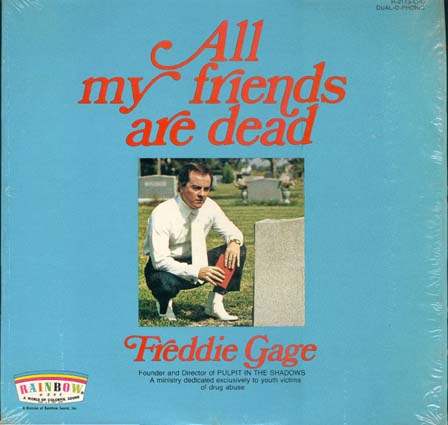
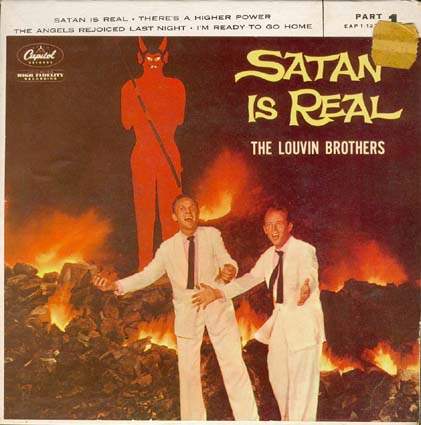
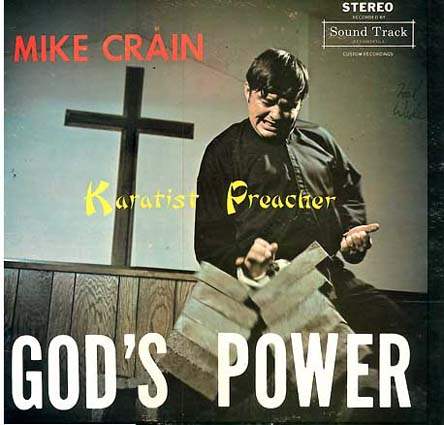

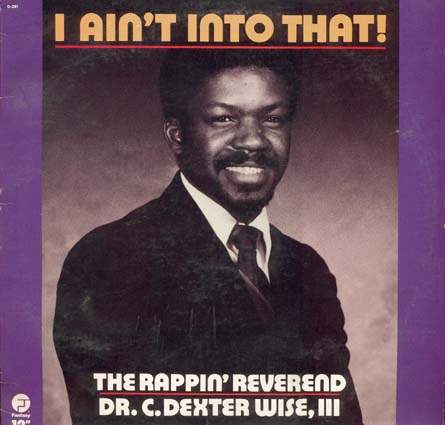



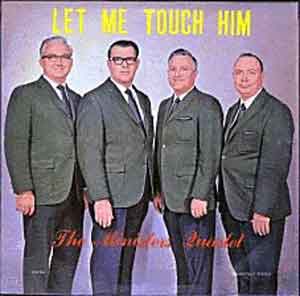

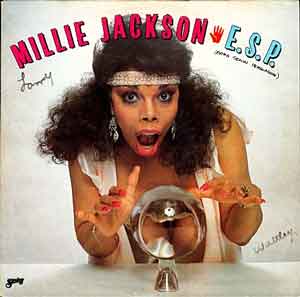
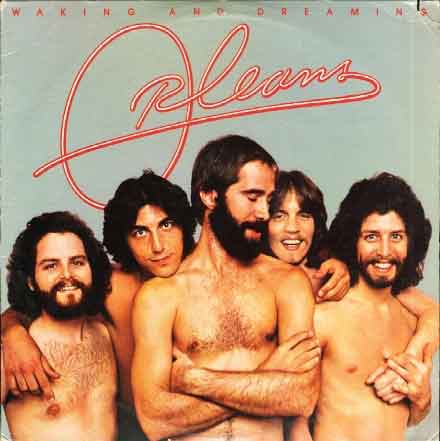





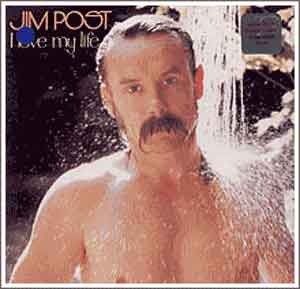




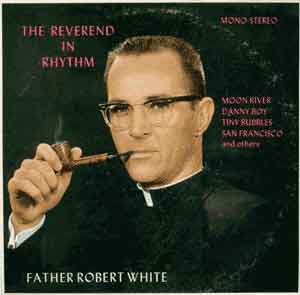



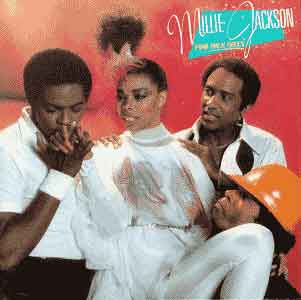
Friday, February 29, 2008
Thursday, February 28, 2008
Survey Finds Teenagers Ignorant on Basic History and Literature Questions - New York Times
Survey Finds Teenagers Ignorant on Basic History and Literature Questions - New York Times
Along the same lines as my post last week on the willful ignorance of the American population, comes this story from the New York Times, which indicates that
Then, Friendly Atheist ran this story about the frustration an assistant English professor faces as the essay assignment he hands out inevitably is returned by students who read Jesus into everything (but specifically literature of the Romantic Period).Fewer than half of American teenagers who were asked basic history and literature questions in a phone survey knew when the Civil War was fought, and one in four said Columbus sailed to the New World some time after 1750, not in 1492.
The survey results, released on Tuesday, demonstrate that a significant proportion of teenagers live in “stunning ignorance” of history and literature, said the group that commissioned it, Common Core.
Three papers in a row this evening found references to poets' beliefs that were both counter to all evidence in their biographies, to what was discussed in class, and which are completely ahistorical: the kind of personal teddy-bear god that has inf(l)ected a lot of popular American religious discourse--especially for teens. I learned that when Wordsworth speaks about nature in Tintern Abbey, he really means "Jesus," that the Tyger solves the problem of evil because it shows us that all of creation is part of God's Work, God's Plan and God's Love. The third paper references the author's desire to find "the presence of God in Blake's writing," but then finally acknowledges that this isn't an appropriate strategy. I'm not entirely sure why the author felt the need to signpost a rejected interpretive strategy, but I wish more students understood this.Are you seeing the trend yet?? As to the last question posed by Horace (the Assistant Professor of English) I would tend to argue that the students expressing this kind of nonsense are not so much "immersed" in this type of theology as they are bound by it. Like Chinese foot-binding, this restriction of intellectual free thought has weakened and atrophied the students' critical abilities and reasoning. This anti-intellectualism naturally comes from religion, especially the more religion resists empirical evidence. That is, the more they rely upon "God did it" or "Because the Bible says so" as explanations for the voids in their knowledge base, the more those seem like acceptable answers to any question, regardless of whether the answer is "known" by the rest of the world (e.g. evolution).
I understand that many students with an evangelical upbringing will naturally transpose the ineffable and infinite of the sublime into the vocabulary of "my god is an awesome god," and I tend to understand this issue a bit more, often with a simple comment like "take care not to transpose your 21st century beliefs onto 200-year-old texts." But the papers where students spend the whole essay arguing that a poem about nature is really about Jesus? They unnerve me.
Are they witnessing to me? Do they believe that they are taking a stand? Are they so deeply immersed in a kind of totalizing theology that they can imagine no other way through which to view experience?
*sigh*
In a possibly related matter, parents that home-school their children in Nebraska are bitterly opposed to a new state legislative bill that would require their children to pass a test above the 50% percentile. If they fail to pass the exam, the child would be required to attend an accredited school. How very draconian.
I have been thinking quite some time about where the proper limit is between security and liberty. The debate over intelligence gathering by the administrative branch, religion and schools, abortion, taxes, etc... are all, at their root, questions over the proper role of government and the ways in which it is permissible or advisable to interact with the individual. Accountant by Day has a couple of good posts on the issue, here and here. Homeschooling is one of those issues that are tricky to me. On the one hand, they are your children and you ought to be able to raise them with the values you deem appropriate. On the other hand, if those values or teachings are handicapping the child for life in twenty-first century Earth, do you still have the same unfettered right to teach them any damn way you please? Where do you draw the line?
The homeschooling experiment really gained traction with the evangelical Christian community. They thought the schools were too godless, and figured they better take their kids education into their own hands. Fair enough, I'd rather you take your kids out than try to change public schools (back?) into Christian indoctrination camps. But I wonder why they are opposed to having their children meet some kind of minimum standard? I just don't get it. Sorry, off on a tangent there, the amusing thing really is that now there are atheist homeschoolers that are worried about the amount of religion that their kids are still getting in school, or even facing persecution over their atheism. But do you see the contradiction? Christian parents think the schools aren't Christian enough, atheist parents think the schools are too Christian. Could they both be right?
Monday, February 18, 2008
A little slow, just plain dumb, stupid, stupider, and religious
The Dumbing Of America - washingtonpost.com
and
Dumb and Dumber: Are Americans Hostile to Knowledge?
Susan Jacoby's The Age of American Unreason is apparently causing quite a stir, already. The New York Times article above was reprinted in my local paper this morning, and I found it quite interesting.
I know that as atheists, we often find ourselves seemingly defending education, science, and logic in a nation that couldn't care less. Or worse, pays them lip-service, all the while insisting that schools would be better or safer if we put prayer back, put god back, and plaster the ten commandments all over. I've noticed this attitude several places lately, usually in response to a school shooting. The most recent place I remember seeing it was over at Friendly atheist, citing this letter to the editor. Narika Kendrick opines (emphasis mine):
Just because you don’t believe in Jesus, who died for your sins and mine, don’t hold it against a politician who has done a heck of a job in the school system just because of your corrupted, immoral, individualistic outlook. By the way, the last time I checked, it’s people like you that cause Columbine or other school shootings to happen because you want prayer, the Ten Commandments, Christians and every other precious good out of the school system. That’s what’s wrong with America today. Be blessed and have a nice life. But leave the morally righteous people alone.
Ignoring the blatant grammatical errors, this attitude encapsulates what Susan Jacoby argues to be a climate of anti-intellectualism and anti-rationalism that holds sway over much of the populace. Atheists reading this will no doubt have their own experiences to bolster that claim. When (not "if") we win debates with the religious, their last line of defense often ends up along the lines of "Atheism is a religion too" or, "I have as much right to my opinion as you do, there's no proof that you're right."
The unique problem facing atheists is not that we lack facts, logic, reason, evidence etc...; clearly we have all of that in spades. The "debate" between belief or atheism has not really significantly changed in hundreds of years. All the arguments have been hashed out, posted on myriad internet sites and available to anyone who's curious. It's not that atheists are unapproachable, so unimaginably evil that we would drink the blood of anyone asking to know more about humanism or free-thought. The problem is that the religious are willfully choosing to ignore evidence contradicting their belief. They are wallowing in their own ignorance. From the Washington Times:
That leads us to the third and final factor behind the new American dumbness: not lack of knowledge per se but arrogance about that lack of knowledge. The problem is not just the things we do not know (consider the one in five American adults who, according to the National Science Foundation, thinks the sun revolves around the Earth); it's the alarming number of Americans who have smugly concluded that they do not need to know such things in the first place. Call this anti-rationalism -- a syndrome that is particularly dangerous to our public institutions and discourse. Not knowing a foreign language or the location of an important country is a manifestation of ignorance; denying that such knowledge matters is pure anti-rationalism. The toxic brew of anti-rationalism and ignorance hurts discussions of U.S. public policy on topics from health care to taxation.
Which is why atheists cannot stand by and leave religion alone. It's not just a difference of opinion, it the difference between truth and lies. And those of you who CHOOSE to believe in lies are trying to hijack the government of this country and force it back into the dark ages!
In the wake of the "New Atheists" and their books, the most common criticism has probably been that they are "elitist" or somehow intellectually snobbish. I fail to see this as a criticism however, and I fully agree with the sentiment. I don't know how much plainer I can say it, but if you believe in something that you don't have good reasons to believe in, expect to get made fun of and demeaned.
All this helps explain the popularity of the New Atheists -- Americans as a whole may not be getting too much religion, but a significant constituency must be getting fed up with being routinely marginalized, ignored and insulted. After all, unbelievers are concentrated at the higher end of the educational scale -- a recent Harris American poll shows that 31 percent of those with postgraduate education do not avow belief in God (compared with only 14 percent of those with a high school education or less). The percentage rises among professors and then again among professors at research universities, reaching 93 percent among members of the National Academy of Sciences. Unbelievers are to be found concentrated among those whose professional lives emphasize science or rationality and who also have developed a relatively high level of confidence in their own intellectual faculties. (from Alternet)Granted, there's still a stray scientist or two who profess belief, but overall that's quite a statement. Facts, evidence, study, research, a thirst for knowledge all seem to almost inexorably lead to atheism. Repression, denial, anti-rationalism and anti-intellectualism are symptomatic of religion. I rather like Sam Harris' challenge to the religious to name one area in which we used to have a scientific explanation but now we have a generally accepted religious explanation that is better suited to explain the phenomenon.
Thursday, February 14, 2008
Atheist sees image of big bang in piece of toast
You never really see things like this from the freethought community. Oops, with the exception of the Flying Spaghetti Monster, that guy is showing up all over!
Atheist sees image of big bang in piece of toast
Atheist Sees Image of Big Bang in Piece of Toast
For Immediate Release: Miracle Toast?
(ACPA-london) Excitement is growing in the Northern England town of Huddlesfield following the news that a local man saw an image of the big-bang in a piece of toast. atheist donald chapman, 36, told local newspaper, "the huddlesfield express" that he was sitting down to eat breakfast when an unusual toast pattern caught his eye.
"i was just about to spread the butter when I noticed a fairly typical small hole in the bread surrounded by a burnt black ring. however the direction and splatter patterns of the crumbs as well as the changing shades emanating outwards from this black hole were very clearly similar to the chaotic-dynamic non-linear patterns that one would expect following the big bang". "it's the beginning of the world" he added excitedly. 
Ever since news of the discovery made national headlines, local hoteliers have been overwhelmed by an influx of atheists from all over the country who have flocked to Huddlesfield to catch a glimpse of the scientific relic. "i have always been an Atheist and to see my life choices validated on a piece of toast is truly astounding" said one guest at the Huddlesfield arms hotel.
To the surprise of many, the UK national atheist association has asked its members not to pay attention to the story despite its potential to inspire less faith. "Given what the religious believe already, this is an easy sell" said one disgruntled activist who said he was going to huddlesfield anyway noting that "seeing is not believing".
Wednesday, February 13, 2008
One fewer god...
I've always liked the atheist argument that everyone is an atheist with respect to most gods throughout human history, we atheists just believe in one fewer. I first saw this at Friendly Atheist, but since then I've Stumbled it a few more times, so I'm doing my part to spread it.
The thing that I especially like is the way this takes the argument out of the abstract and really confronts one with the fact that there are literally thousands of belief systems out there (if not more?). Most have fallen by the wayside, especially with the inexorable march of science as an explanatory force. There are a few pesky followers of various cults (e.g. cargo cults, Christianity, etc...) that refuse to go away in the face of overwhelming evidence disproving their most basic claims. Also, remember that the popularity of a given god has no correlation with the "truth" to be found within that religion/cult.
Christian beliefs vs. atheist beliefs
| Gods that Christians don't believe in | Gods that atheists don't believe in |
| Aesir Agasaya Agdistis Ah chuy kak Ah cun can Ah hulneb Ah puch Ahulane Ahura mazda Aine Airmid Aizen-myoo Aji-suki-taka-hi-kone Akea Alberich Ama-no-minaka-nushi Ama-tsu-mara Amaethon Amaterasu Amatsu Amatsu-kami Ame-no-mi-kumari Ame-no-wakahiko Amidaam-no-tanabata-hime An Anahita Anat Anath Andhrimnir Andraste Andvari Angrboda Angus og Ankt Annapurna Anouke Anshar Anu Aphrodite Apollo Apsu Apukohai Arawn Aray Ares Arianrhod Artemis Artio Asclepius Asherah Ashur Astarte Astrild Athena Athirat Athtart Atla Atlas Audhumla Ba'al hadad Baal Baal-hammon Baalat Babd catha Bacchus Badb Baku Balder Balor Balrama Bast Ba xian Beg-tse Bel Belatu-cadros Bellona Belobog Benten Benzai-ten Bergelmir Berstuk Bes Beyla Bhuvaneshwari Bimbogami Binzuru-sonja Bishamon Bixia yuanjin Blodeuwedd Borghild Bosatsu Bragi Brahma Bran Branwen Brighid Brigit Bris Brono Buddha Bugid y aiba Buluc chabtan Burijas Butsu Bylgia Camalus Camaxtli Camulus Cariocienus Caswallawn Ceres Ceridwen Cernunnos Cerridwen Cerunnos Chac Chalchiuhtlicue Charun Chemosh Cheng-huang Chien-shin Chimata-no-kami Chup-kamui Crnobog Cupid Cybele Cyhiraeth Dagda Dagon Dagon Dagur Daibosatsu Daikoku Dainichi Damkina Danu Davlin Dawn Dazbog Demeter Dev Dewi Dhanwantari Dhumavati Diana Diancecht Di cang Dionysus Disen Don Donar Dosojin Dozoku-shin Druantia Durga Dylan Dziewona Ea Ebisu Eir Ekchuah Ekibiogami El Elaine El elyon Elli Emma-o Enki Enlil Enyalius Enyo Eos Epona Ereskigal Erra Eshara Eshmun Farbauti Faunus Fenrir Flidais Flins Flora Forseti Freya Freyr Frigg Fudo Fujin Fukurokuju Funadama Futsu-nushi-no-kami Gaia Gama Ganesha Ganga Garuda Gauri Geb Gefion Gekka-o Geong si Gerd Giobhniu Gu Guan-di Gun Gwydion Gwynn ap nudd Hachiman Hades Hadur Hai Haniyasu-hiko Haniyasu-hime Hanuman Hathor Haulili Haya-ji Heimdall Hel Helios Heng-o Hephaestus Hera Hermes Hermod Hestia Hiaka Hiiakawawahilani Hinakuluiau Hiruko Hod Hoderi Holler Hoori Hors Horus Hoso-no-kami Hotei Hsi-wang-mu Huitzilopochtli Hygeia Ictinike Ida-ten Idun Ika-zuchi-no-kami Iki-ryo Inanna Inari Indra Inti Irmin Ishtar Isis Isora Ixtab Izanagi Izanaki Izanami Janus Jarilo Jarovit Jinushigami Jizo Jord Jormungand Juichimen Juno Jupiter Jurojin Juthrbog Juturna Kagutsuchi Kalaipahoa Kali Kaluannuunohonionio Kamado-gami Kamapua'a Kami-kaze Kaminari Kamohoali'i Kamooalii Kanaloa Kanayama-hiko Kanayama-hime Kane Kane-hekili Kapo Kapohoikahiola Karewit Kari Kartikeya Karttikeya Kathirat Kaupe Kawa-no-kami Kenro-ji-jin Keoahikamakaua Keuakepo Khepri Ki Kiha Kingu Kinich ahau Kishar Kishi-bojin Kishijoten Kishimo-jin Ko-no-hana Kojin Koleamoku Korrawi Koshin Kothar Koya-no-myoin Krishna Ku Kuahana Kukailimoku Kukaoo Kukulcan Kukunochi-no-kami Kuni-toko-tachi Kura-okami Kurma Kuula Kvasir Laamaomao Labraid Lada Lado Laga Laka Lakakane Lakshmi Laran Lares Libintia Lie Liza Llyr Lofn Loki Lono Lonomakua Lotan Lugh Luna Macha Maeve Magna mater Magni Mahulu Maia Manannan Mani Manua Marduk Margawse Marisha-ten Marowit Mars Maru Marzanna Matangi Math ap mathowny Matka gabia Matka ziemia Maui Mawaya-no-kami Maya Mebd Medb Melqart Menhit Menthu Mentu Mercury Mextli Mider Mikaboshi Milu Miming Mimir Minerva Miro Mithras Mixcoatl Miyazu-hime Moaalii Modi Mokosh Mokualii Moloch Monju-bosatsu Mooaleo Morrigan Mot Mummu Murukan Musubi-no-kami Myrrdin Nacon Nai-no-kami Naka-yama-tsu-mi Nammu Nanaja Nanna Nanse Neith Nemain Nemesis Nephthys Neptune Nergal Niamh Nikko-bosatsu Ninazu Ninhurzag Ninigi-no-mikoto Nintu Ninurta Njord Nominosukune Norns Nott Nut Nyorai Oanomochi Odin Ogoun Ohkuninushi Oho-yama Ohonamochi Ohyamatsumi Okuni-nushi Ops Orgelmir Oro Osiris Ostara Ouli Owatatsumi Oyamatsumi Pales Pan Papa Parvati Pele Perperuna Persephone Perun Phaethon Phoebe Phoebus apollo Pilumnus Pluto Podaga Poliahu Pomona Porewit Poseidon Proserpine Puea Qadeshtu Quetzalcoatl Radegast Raiden Ram Rama Ran Re Resef Reshep Resheph Rhea Rod Rugiviet Ryo-wo Sabazius Sae-no-kami Saga Sakhmet Sambo-kojin Samulayo Sarasvati Sarutahiko ohkami Saturn Segomo Selene Sengen Septu Seshat Seth Seti Shachar Shaka Shakti Shalim Shamash Shamayim Shapsu Shemesh Shen yi Shichi fujukin Shinda Shine-tsu-hiko Shiva Shoden Shoki Shu Si-wang-mu Siebog Sif Simargl Sin Sirona Sita Siwa Sjofn Skadi Sleipnir Sol Stribog Suijin Suitengu Sukuna-biko Surya Susanoh Susanowa Svantetit Svarog Svetovid Svetovit Syn Takami-musubi Takemikadzuchi Taki-tsu-hiko Tatsuta-hime Tawaret Tefnut Tehwom Tenjin Teutates Tezcatlipoca Thanatos The zorya Thor Tiamat Tlaloc Tonatiuh Toyo-uke-bime Toyouke-omikami Triglav Tsuki-yumi Tu Tu matauenga Turris Tyche Tyr Uba Uga-jin Uga-no-mitama Ukanipo Ukemochi Ulaulekeahi Uli Ull Utu Uzume Vali Valkyries Vamana Vanir Var Veles Venus Vertumnus Vesta Vidar Vishnu Volturnus Vulcan Wakahiru-me Wata-tsu-mi Wepwawet Wurukatte Xipe Xi wang-mu Xochipilli Xochiquetzal Yabune Yam Yam-nahar Yama-no-kami Yamato Yarikh Ymir Yu-huang Yuki-onna Yum kimil Zababa Zana Zedek Zeus Zirnitra Zislbog Zizilia Zroya | Aesir Agasaya Agdistis Ah chuy kak Ah cun can Ah hulneb Ah puch Ahulane Ahura mazda Aine Airmid Aizen-myoo Aji-suki-taka-hi-kone Akea Alberich Ama-no-minaka-nushi Ama-tsu-mara Amaethon Amaterasu Amatsu Amatsu-kami Ame-no-mi-kumari Ame-no-wakahiko Amidaam-no-tanabata-hime An Anahita Anat Anath Andhrimnir Andraste Andvari Angrboda Angus og Ankt Annapurna Anouke Anshar Anu Aphrodite Apollo Apsu Apukohai Arawn Aray Ares Arianrhod Artemis Artio Asclepius Asherah Ashur Astarte Astrild Athena Athirat Athtart Atla Atlas Audhumla Ba'al hadad Baal Baal-hammon Baalat Babd catha Bacchus Badb Baku Balder Balor Balrama Bast Ba xian Beg-tse Bel Belatu-cadros Bellona Belobog Benten Benzai-ten Bergelmir Berstuk Bes Beyla Bhuvaneshwari Bimbogami Binzuru-sonja Bishamon Bixia yuanjin Blodeuwedd Borghild Bosatsu Bragi Brahma Bran Branwen Brighid Brigit Bris Brono Buddha Bugid y aiba Buluc chabtan Burijas Butsu Bylgia Camalus Camaxtli Camulus Cariocienus Caswallawn Ceres Ceridwen Cernunnos Cerridwen Cerunnos Chac Chalchiuhtlicue Charun Chemosh Cheng-huang Chien-shin Chimata-no-kami Chup-kamui Crnobog Cupid Cybele Cyhiraeth Dagda Dagon Dagon Dagur Daibosatsu Daikoku Dainichi Damkina Danu Davlin Dawn Dazbog Demeter Dev Dewi Dhanwantari Dhumavati Diana Diancecht Di cang Dionysus Disen Don Donar Dosojin Dozoku-shin Druantia Durga Dylan Dziewona Ea Ebisu Eir Ekchuah Ekibiogami El Elaine El elyon Elli Emma-o Enki Enlil Enyalius Enyo Eos Epona Ereskigal Erra Eshara Eshmun Farbauti Faunus Fenrir Flidais Flins Flora Forseti Freya Freyr Frigg Fudo Fujin Fukurokuju Funadama Futsu-nushi-no-kami Gaia Gama Ganesha Ganga Garuda Gauri Geb Gefion Gekka-o Geong si Gerd Giobhniu Gu Guan-di Gun Gwydion Gwynn ap nudd Hachiman Hades Hadur Hai Haniyasu-hiko Haniyasu-hime Hanuman Hathor Haulili Haya-ji Heimdall Hel Helios Heng-o Hephaestus Hera Hermes Hermod Hestia Hiaka Hiiakawawahilani Hinakuluiau Hiruko Hod Hoderi Holler Hoori Hors Horus Hoso-no-kami Hotei Hsi-wang-mu Huitzilopochtli Hygeia Ictinike Ida-ten Idun Ika-zuchi-no-kami Iki-ryo Inanna Inari Indra Inti Irmin Ishtar Isis Isora Ixtab Izanagi Izanaki Izanami Janus Jarilo Jarovit Jinushigami Jizo Jord Jormungand Juichimen Juno Jupiter Jurojin Juthrbog Juturna Kagutsuchi Kalaipahoa Kali Kaluannuunohonionio Kamado-gami Kamapua'a Kami-kaze Kaminari Kamohoali'i Kamooalii Kanaloa Kanayama-hiko Kanayama-hime Kane Kane-hekili Kapo Kapohoikahiola Karewit Kari Kartikeya Karttikeya Kathirat Kaupe Kawa-no-kami Kenro-ji-jin Keoahikamakaua Keuakepo Khepri Ki Kiha Kingu Kinich ahau Kishar Kishi-bojin Kishijoten Kishimo-jin Ko-no-hana Kojin Koleamoku Korrawi Koshin Kothar Koya-no-myoin Krishna Ku Kuahana Kukailimoku Kukaoo Kukulcan Kukunochi-no-kami Kuni-toko-tachi Kura-okami Kurma Kuula Kvasir Laamaomao Labraid Lada Lado Laga Laka Lakakane Lakshmi Laran Lares Libintia Lie Liza Llyr Lofn Loki Lono Lonomakua Lotan Lugh Luna Macha Maeve Magna mater Magni Mahulu Maia Manannan Mani Manua Marduk Margawse Marisha-ten Marowit Mars Maru Marzanna Matangi Math ap mathowny Matka gabia Matka ziemia Maui Mawaya-no-kami Maya Mebd Medb Melqart Menhit Menthu Mentu Mercury Mextli Mider Mikaboshi Milu Miming Mimir Minerva Miro Mithras Mixcoatl Miyazu-hime Moaalii Modi Mokosh Mokualii Moloch Monju-bosatsu Mooaleo Morrigan Mot Mummu Murukan Musubi-no-kami Myrrdin Nacon Nai-no-kami Naka-yama-tsu-mi Nammu Nanaja Nanna Nanse Neith Nemain Nemesis Nephthys Neptune Nergal Niamh Nikko-bosatsu Ninazu Ninhurzag Ninigi-no-mikoto Nintu Ninurta Njord Nominosukune Norns Nott Nut Nyorai Oanomochi Odin Ogoun Ohkuninushi Oho-yama Ohonamochi Ohyamatsumi Okuni-nushi Ops Orgelmir Oro Osiris Ostara Ouli Owatatsumi Oyamatsumi Pales Pan Papa Parvati Pele Perperuna Persephone Perun Phaethon Phoebe Phoebus apollo Pilumnus Pluto Podaga Poliahu Pomona Porewit Poseidon Proserpine Puea Qadeshtu Quetzalcoatl Radegast Raiden Ram Rama Ran Re Resef Reshep Resheph Rhea Rod Rugiviet Ryo-wo Sabazius Sae-no-kami Saga Sakhmet Sambo-kojin Samulayo Sarasvati Sarutahiko ohkami Saturn Segomo Selene Sengen Septu Seshat Seth Seti Shachar Shaka Shakti Shalim Shamash Shamayim Shapsu Shemesh Shen yi Shichi fujukin Shinda Shine-tsu-hiko Shiva Shoden Shoki Shu Si-wang-mu Siebog Sif Simargl Sin Sirona Sita Siwa Sjofn Skadi Sleipnir Sol Stribog Suijin Suitengu Sukuna-biko Surya Susanoh Susanowa Svantetit Svarog Svetovid Svetovit Syn Takami-musubi Takemikadzuchi Taki-tsu-hiko Tatsuta-hime Tawaret Tefnut Tehwom Tenjin Teutates Tezcatlipoca Thanatos The zorya Thor Tiamat Tlaloc Tonatiuh Toyo-uke-bime Toyouke-omikami Triglav Tsuki-yumi Tu Tu matauenga Turris Tyche Tyr Uba Uga-jin Uga-no-mitama Ukanipo Ukemochi Ulaulekeahi Uli Ull Utu Uzume Vali Valkyries Vamana Vanir Var Veles Venus Vertumnus Vesta Vidar Vishnu Volturnus Vulcan Wakahiru-me Wata-tsu-mi Wepwawet Wurukatte Xipe Xi wang-mu Xochipilli Xochiquetzal Yabune Yam Yam-nahar Yama-no-kami Yamato Yarikh Ymir Yu-huang Yuki-onna Yum kimil Zababa Zana Zedek Zeus Zirnitra Zislbog Zizilia Zroya Yahweh |
Labels: atheism, humor, literalism, religion
Friday, February 8, 2008
Mormons Dismayed by Harsh Spotlight - WSJ.com
Mormons Dismayed by Harsh Spotlight - WSJ.com
This whole presidential campaign has been especially interesting to me, as a former (recovering?) Mormon. To see the way Mormons are portrayed in the media, to read the commentary from other religious and secular sources, and to consider my own thoughts and feelings has been a unique experience for me.
As a child and adolescent, I remember being taught in church the standard "party line" for questions like "are Mormons Christian?", "does your dad have lots of wives", etc.... At the time, I thought that the way we were perceived by mainstream Christians was silly-- after all, shouldn't we as Mormons have the right to self-identify as Christians? Doesn't professing belief in the divinity of Christ count? If the church outlawed polygamy a hundred years ago, why are we still getting this question? We were taught, both implicitly and explicitly, that the reason for these questions was essentially jealousy or other latent ill will because we were the "one true religion". All of these false churches were banding together against us because we had the revealed truth! It was so obvious!
Once in college, I devoured philosophy courses. I realized that the doubts that I had were not unique to me, that there was nothing wrong with pursuing metaphysical questions. When you're a Mormon, questioning is mildly discouraged. Questioning too much might lead you to false prophets, away from the truth. That mindset never really sat quite right with me, but I was always told to pray about it, listen for a "still, small voice" that would tell me God's will. Mormons place a great deal of emphasis on the concept that prophecy is not dead, that God personally, literally, speaks. Only, I never heard anything. I assumed that I was unworthy, that the very existence of my doubts had blocked me from being receptive to the voice of God. It wasn't until I started reading more of the philosophy of religion that I realized it was both normal and healthy to question the existence of god. Atheism was a viable alternative. Not only viable, it was the only option that made sense to me. The thing that I loved about philosophy was that nobody was telling me the answers. There were no "answers". There was a process of thought. Nobody was promoting atheism, or theism, or one religion over another; there was only an insistence that you had to have good reasons for whatever you believed. Your beliefs had to have intellectual consistency.
For me, there was no turning back. I tasted freedom, and reason was my new standard. It still is.
It wasn't until this year that I started thinking again about the issues that Mormonism raises, due primarily to Mitt Romney's campaign. Only now, I got to see the commentary from the outside, as a non-Mormon. What a difference! Then I read the front page article- above the fold no less- from today's Wall Street Journal. What a perfect catalyst for this post, which I had been considering writing for some time. Most Christians today seem to have a bit of a persecution complex (see also Bill Donohue), but Mormons have it worse than most. They've still got it in the back of their mind that the founder of their church was martyred and they were forced to flee to Utah in search of religious freedom (read: polygamy). Add to this the conviction that they are the "peculiar people" and that Satan is actively trying to keep people from their religion because of its truth, and one develops quite a heady mix of persecution complex.
In spite of this, there was always the sentiment within the church that they were making headway. The church was growing rapidly, both home and abroad, which only fed the conviction that people were finding the truth irresistable. That's the context behind the article in the Wall Street Journal- that's why Mormons are so surprised now to find that people still don't like them. *gasp* Mormon beliefs are still mistrusted within and without Christianity, and rightly so.
Mr. Romney's candidacy revived old lines of attack and mockery of some of the church's unusual practices, such as secret ceremonies, the wearing of special undergarments, and the baptizing the dead in the belief that it will help them join family members in heaven.
The only thing that I don't understand is why Mormon beliefs are ridiculed within Christianity, but Christian beliefs are not held up to the same level of ridicule in society at large.
I apologize, but I can't remember the radio show I was listening to, but the host had a brilliant bit of satire. It was several weeks ago, and he was trying to argue that the religion of a candidate ought not be a part of the equation for determining who you are going to vote for. He was deadpanning that "yes, those Mormons are so ridiculous for believing that an angel came to Earth with golden plates, revealing a new religion. All good Christians know that it really happened when a new star appeared in the sky and a virgin gave birth to the literal son of god. All good Christians know that they literally are eating the flesh and drinking the blood of this god-man when they take communion. They know that the universe was created in six days, and two of every animal in the world rode on a boat at the same time. And of course, all good Muslims know about the 72 virgins awaiting martyrs..." Again, I can't remember the exact source, but if someone remembers, please post it in the comments.
None of these beliefs make any damn sense given what a rational person can observe about the world around them. This is what I came to realize about all religions. The more I thought about them, the less sense they made. Once I stopped accepting the dogma I was fed, the scales fell from my eyes and I was able to think. This is why I make fun of you if you believe in unbelievable things. This is why I occasionally toy with the thought of moving to northern Europe, where things are a little more sane. This is why I'm outraged when you say you want to put prayer back in the schools, or change the constitution, or limit stem cell research, or any of thousands of things that you do that hurt other people or take away their rights without any good reason. This is why I'm an atheist.
Labels: atheism, de-conversion, godless, literalism, Mormon, politics, religion
Tuesday, February 5, 2008
Omaha.com Metro/Region Section
Omaha says "no" to Madalyn Murray O'Hair Street
Anyone who thought it would go another way was, of course, crazy. By the way, here's the area that was at stake for a "commemorative" street naming:
View Larger Map
Not exactly asking for an empire, was he?
Councilman Garry Gernandt said after the meeting that he was contacted by close to 200 constituents concerning the Murray O’Hair sign, and not a single one was in support.
“They said we should keep religious and state issues separate,” Gernandt said.
I promise you that was the first time any of those 200 people had said anything close to "we should keep religious and state issues separate". Those are the same people who wrote letters to the editor bemoaning the lack of prayer in school and seeing this as another attempt of the godless majority (insert laugh here) to suppress the rights of good Christians. Do I get credit for being a prophet now? Here's what I said this morning:
Luckily, the city council meets today and will swiftly vote down this attempt to create a godless democracy where a theocracy ought to be. HA!
Firestorm begins over Omaha street sign
I told you it would happen. The furor has begun to kick up in Omaha over the dastardly plan to prove to Christians that they are second-rate citizens by placing a commemorative street sign on a small portion of a minor street. Here's the clipping from this morning's Omaha World Herald. Billy Graham? Seriously? Mother Theresa? And what first amendment rights of Christians have been violated? Last time I checked, it was the atheists that were worried about our Constitutional rights! People throw around the term "First Amendment rights" a little cavalierly, I don't think that a lot of them actually know what the first amendment is. This is what most people think the first amendment says:
Billy Graham? Seriously? Mother Theresa? And what first amendment rights of Christians have been violated? Last time I checked, it was the atheists that were worried about our Constitutional rights! People throw around the term "First Amendment rights" a little cavalierly, I don't think that a lot of them actually know what the first amendment is. This is what most people think the first amendment says:
I can do or say whatever I want. Those who disagree with me are attempting to violate my rights and are attacking me personally, as well as all that I hold dear. Any attempt to have a rational debate should be met with extreme hyperbole, or possibly violence.--Signed, "The Founders"
P.S. We were all Christian and meant for this country to stay Christian for ever and ever, k thx.
I know it's subtle, but do you see the differences there?Amendment 1 - Freedom of Religion, Press, Expression.
Congress shall make no law respecting an establishment of religion, or prohibiting the free exercise thereof; or abridging the freedom of speech, or of the press; or the right of the people peaceably to assemble, and to petition the Government for a redress of grievances.
The second guy may be even dumber than the first. Sure, we're not sweeping the nation, but we're not a "microscopic" minority! Wikipedia indicates that "most studies indicate that the non-religious make up about 12-15% of the world's population". And I thought muslin was a fabric, not a religion?
Luckily, the city council meets today and will swiftly vote down this attempt to create a godless democracy where a theocracy ought to be. HA!


Sunday, February 3, 2008
Omaha street sign to honor famous atheist?
Omaha.com Metro/Region Section
Hemant at Friendly Atheist beat me to it, but it's in my local paper :) Tilting at windmills? Probably, especially here in the conservative (read: Christian monopoly) midwest.
However, I was astounded to hear Councilman Chuck Siegerson say, "We have to be careful when it comes to something like this," he said. "We try to keep religion out of it."
Wow, how very enlightened of you, Councilman. It makes me wonder though, if a lowly city councilman from the pseudo-metropolis of Omaha argues that religion shouldn't have a place in naming streets, why do we have presidential candidates that think it ought to have a place in the constitution?
EDIT: You can't tell from the website, but this was front page news, albeit below-the-fold. I can't wait for the firestorm to hit the letters to the editor page, which is called "The Public Pulse", but should be known as "Barely a Pulse" for all the intellectual honesty involved. It's too bad they don't make these letters available online, as I've also commented on them here and here.




